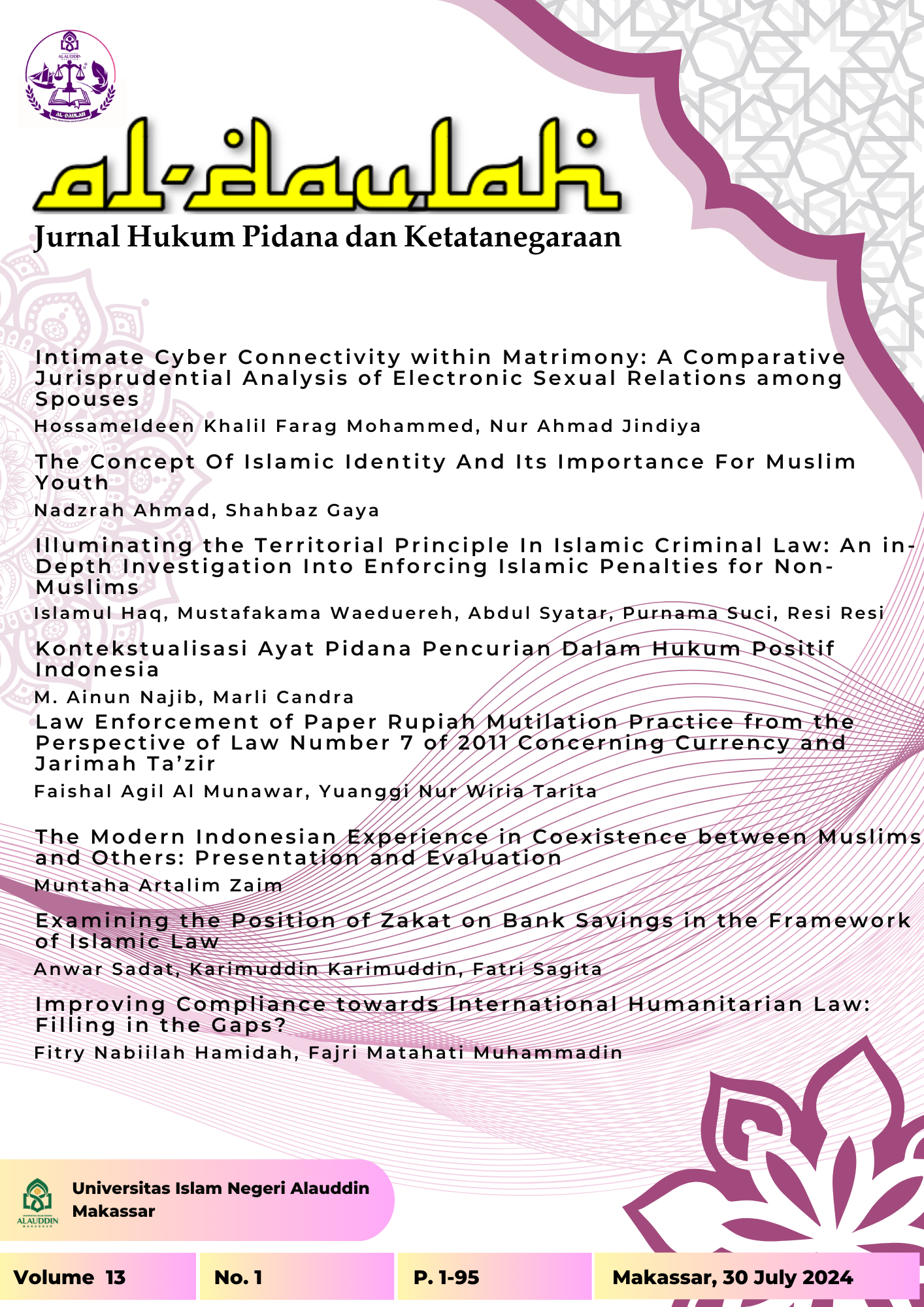Policy Analysis of Civil Servant Mutation on the Needs of Local Government Organizations Based on BKN Regulation No. 5 of 2019
Abstract
Abstract
The implementation of the civil servant mutation policy in the context of the needs of regional government organizations in Gowa Regency is a strategic action carried out by the regional government to transfer employees according to the needs of certain units or departments. Thus, the goal to be achieved is to increase the efficiency and effectiveness of public services by placing employees in positions that suit their abilities and competencies. The research used is field research. This research uses qualitative analysis, intending to provide a systematic description of a phenomenon, symptoms and conditions that occur as well as explaining precisely the conditions that are related to the variables studied. The resulting data shows that the civil servant mutation process must be enforced with strong legal protection, which ensures that all stages of mutation take place fairly, openly and in accordance with applicable regulations. Legal protection for civil servants who experience transfers by the regional government in Gowa Regency includes several important aspects, such as: 1) Principle of Legal Certainty; 2) Transparent Procedures; 3) Consultation and Clarification; 4) Protection from Discrimination and 5) Appeal Mechanism.
Keywords: Mutation; Civil Servant; Local Government
References
REFERENCES
Abdullah, Dudung. "The Relationship of the Central Government with Local Government." Journal of Positum Law 1.1 (2016), 83-93
Amrizal, Dedi. et al, Effectiveness of the Mechanism for Implementing the Transfer or Mutation of Employees in the Regional Civil Service Agency of Medan City (Proceedings of the National Seminar on Regional Development Planning and Regional Policy 2021). Medan: UMSU Press. 2021.
Anggara, Sahya. State Civil Service. Cet. I; Bandung: CV. Loyal Library, 2016.
Audria, and Hananto Widodo. "Mutation of Civil Servants (PNS) Based on PANRB Ministerial Regulation No. 27 of 2021." Novum: Journal of Law 01, No. 1 (2022), p. 92
Basri, Hasan. "Authority of Regional Heads in Determining the Formation of Procurement and Appointment of Regional Civil Servants in the Civil Service System in Indonesia." Pakuan Law Review 3.2 (2017): 99.
Dadang, Position and Function of DPRD Recommendations in Organizing Licensing Authority. Cet. I; Jawa Tengah, CV. Pena Persada. 2020.
Domai, Tjahjanulin. Desentralisasi. Cet. I; Malang. Universitas Brawijaya Press (UB Press). 2011.
Gatot Subroto, Tax and Funding of Indonesian Civilization. Jakarta: PT. Elex Media Komputindo. 2020.
Hidayat, Hasannudin. "Implementation of Civil Servant Mutation Regulations in the Perspective of Legal Sociology." AN-NIZAM 16. No. 1 (2022), h. 2.
Iqbal Fadhlurrohman, Mochammad. Suswanta Suswanta dan Etika Khairina. "Polemic on the Implementation of Mutation and Open Bidding / Open Selection in Ciamis Regency." Jurnal Ilmu Pemerintahan Widya Praja 47.1 (2021): 52-66
Labolo, Muhadam. Understanding Government Science (a study, theory, concept and development) (Jakarta: Rajawali Pers. 2014.
Liu, Christin Nathania. "The Position of State Ministries in the State Government System of the Republic of Indonesia." Lex Privatum 10.5 (2022), h. 26.
Mahfud MD, Moh. Indonesia's Constitutional Policy and Structure (Edisi Revisi) (Jakarta: Renika Cipta. 2000.
Mangemba, Mualim Dg, and Fadhli Juned. "Implementation of Civil Servant Mutation: Achievement Mutation, Maintenance and Punishment." Jurnal Sosio Sains 4.2 (2018): 139
Mu’iz R. M. Understanding the State Civil Apparatus from the Basics. Cet. I; Jawa Barat: Guepedia, 2020.
Nainggolan, English. Civil Servants Quit Political Parties Stuck in Regional Elections. Cet. I; Jakarta: Kencana. 2021.
Gowa Regency Government Ranks Second in South Sulawesi Completion of ASN Promotion - (gowakab.go.id) Diakases December 1, 2022
Sandi, Wira Karnova. "Analysis of the Authority of Regional Heads in Determining the Procurement and Appointment Formation of Civil Servants." Limbago: Journal of Constitutional Law 2.1 (2022): h. 2
Satori, Djam‟an dan Aan Komariah, Qualitative Research Methodology. Cet. III; Bandung: CV. Alfabeta. 2011.
Setiawan, Irfan. Regional Government Handbook. Cet. I; Yogyakarta: Wahana Resolusi, 2018.
Sjafri Mangkuprawira, Tb. Effective Strategies for Managing Employees. Cet. I; Bogor: IPB Press. 2011.
Sri Rahayu, Ani. Introduction to Local Government; Study of Theory, Law and Its Applications. Cet. I; Jakarta: Sinar Grafika. 2018.
Sudrajat, Tedi. Government Bureaucratic Law; Strength and Department. Cet. I; Jakarta: Sinar Grafika. 2017.
Suharto, Yanto. dan Farihah Sulasiah, Become a Character ASN in Various Frames. Cet. I; Malang: Media Nusa Creative. 2021.
Law No. 5 of 2014 concerning the State Civil Apparatus, p.3
Wibowo, M. E, Pandu. New Designers of Bureaucracy: Welcoming the Wave of Millennial ASNs in Bureaucracy. Jakarta: Phoenix Publisher, 2019.
Zubair Usman , S.STP, M. Si (BKPSDM Head ), Interview Gowa, 12 Juli 2023
Akbar Fauzi Saputra, S.STP, (Head of Field Mutasi), Interview, Gowa, July 25, 2023
A. Afrianto Hamka, SH, (HR Analyst Functional Officer), Interview, Gowa, July 12, 2023
Dra Irawaty Sir Idar, M.Si ( BKPSDM Secretary), Interview, Gowa 22 Mei 2023
ASN Up New Department, Adnan: If There's a Card and an Enemy Sect, Both I'm Copot – Fingertips Diaxed December 1, 2022
The authors of a work hold the copyright and grant the Al-Daulah: Jurnal Hukum Pidana dan Ketatanegaraan the right of first publication. The work is also licensed under the Creative Commons Attribution License (CC BY 4.0), which enables others to share the work while acknowledging the authorship and initial publication in the journal. The authors can make separate contractual agreements for the non-exclusive distribution of the published version of the work, such as by posting it to an institutional repository or editing it for a book, with an acknowledgment of its initial publication in this journal. Authors are allowed and encouraged to post their work online, such as in institutional repositories or on their website, before and during the submission process. This can lead to productive exchanges and greater citation of the published work.


